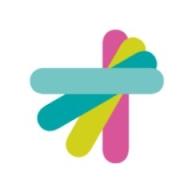

Kiuwan and SonarQube Cloud are leading in code analysis tools, competing in features and affordability. Kiuwan holds an edge with its cost-effectiveness and flexibility, whereas SonarQube Cloud leads with its comprehensive features.
Features: Kiuwan offers speed in scanning, detailed insights, and the ability to scan code locally and on the cloud. SonarQube Cloud provides continuous code analysis, integrates seamlessly into workflows, and facilitates code quality improvements with detailed reports. Both platforms excel in reporting capabilities.
Room for Improvement: Kiuwan needs to expand programming language support and integrate better with development frameworks. Its technical support and immediate assistance could be improved. SonarQube Cloud can enhance false positive handling and CI/CD integration, with a need for improved documentation and flexible reporting.
Ease of Deployment and Customer Service: Kiuwan offers diverse deployment options, including on-premises and hybrid setups, while SonarQube Cloud remains cloud-based. Despite generally positive feedback for SonarQube Cloud's support, Kiuwan faces criticism for its lack of responsiveness.
Pricing and ROI: Kiuwan is cost-effective for smaller codebases, charging by lines of code, but ROI may not be immediately visible. SonarQube Cloud's higher pricing is offset by its extensive features, appealing to larger enterprises. Both tools enhance code quality and improve application time-to-market, making them valuable investments.


Software analytics technology with a breadth of third party integrations that takes into account the wealth of applications your teams are currently using.
We facilitate and encourage work between unlocalized teams. We understand the complexity of working on multi technology environments, constantly striving to increase the number of programming languages and technologies we support.
SonarQube Cloud offers static code analysis and application security testing, seamlessly integrating into CI/CD pipelines. It's a vital tool for identifying vulnerabilities and ensuring code quality before deployment.
SonarQube Cloud is widely used for its ability to integrate with tools like GitHub, Jenkins, and Bitbucket, providing critical feedback at the pull request level. It's designed to help organizations maintain clean code by acting as a quality gate. This service supports development methodologies including sprints and Kanban for ongoing vulnerability management. While appreciated for its dashboard and integration capabilities, some users find initial setup challenging and note the need for enhanced documentation. The recent addition of mono reports and microservices support offers deeper insights into security and code quality, though container testing limitations and false positives are noted drawbacks. Manual intervention is sometimes required to address detailed reporting, with external tools being necessary for comprehensive analysis. Notifications for larger teams during serious issues and streamlined integration of new features are also areas of improvement.
What are the key features of SonarQube Cloud?In specific industries, SonarQube Cloud finds application in finance and healthcare where code integrity and security are paramount. It allows teams to identify critical vulnerabilities early and ensures that software development aligns with industry regulations and standards. By continuously analyzing code, it aids organizations in deploying secure and reliable applications, fostering trust and compliance.
We monitor all Static Application Security Testing (SAST) reviews to prevent fraudulent reviews and keep review quality high. We do not post reviews by company employees or direct competitors. We validate each review for authenticity via cross-reference with LinkedIn, and personal follow-up with the reviewer when necessary.